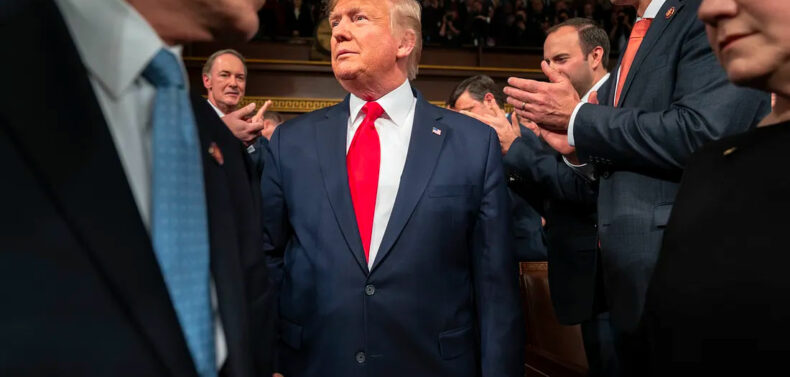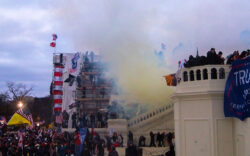A would-be assassin’s gunfire galvanized this nation yet again on July 13 when Donald Trump narrowly escaped death as he spoke to a crowd in Pennsylvania. A Trump supporter at the rally was killed by the bullets aimed at the former president. Two others were badly injured.
Secret Service snipers killed the rooftop rifleman who fired the shots, but the security lapse brought scrutiny and criticism to the agency. A 2024 presidential contest that was already crazy got even crazier after the sad, surreal, but not surprising assassination attempt.
Adding to the campaign’s craziness were two Republican politicians from Georgia. The ever-irascible congresswoman Marjorie Taylor Greene hissed that “Democrats wanted this to happen.” Athens-area Rep. Mike Collins also was quick to brandish his Capitol Hill craziness credentials, saying that “Joe Biden sent the orders,” and that Biden should be prosecuted for “inciting an assassination.”
MAGA minions like Greene and Collins conveniently forgot that Trump has long used threats and jokes about political violence during his incessant, raucous rallies, vowing to pay legal bills for Trump supporters who assault protesters, joking about the vicious attack on the husband of former House Speaker Nancy Pelosi and holding out the possibility of presidential pardons for the Jan. 6 Capitol Hill insurrectionists—criminals that he lionizes as “patriots,” “hostages” and “political prisoners.”
Trump’s authoritarian tendencies and his coziness with an unsavory crew of dictators are unprecedented in American politics, but he was headed toward re-election even before the assassination attempt. Just two days after his brush with death, Trump received a hero’s welcome at the GOP convention in Milwaukee alongside his running mate, the ultra-conservative Ohio Sen. J. D. Vance—a former Trump doubter who now genuflects at the altar of Trumpery. The gunshots at a rally in Pennsylvania may take Trump and Vance to Pennsylvania Avenue after November’s presidential election.
Assassinations and attempted assassinations are nothing new. Sometimes the campaign trail is stained with blood. Four U.S. presidents—Abraham Lincoln, James Garfield, William McKinley and John F. Kennedy—have been murdered by gunmen. Other presidents and candidates have narrowly escaped death by assassination in the years since 1835, when President Andrew Jackson was the target of a gunman packing two pistols. Both guns misfired, and Jackson had to be restrained from attacking the would-be killer himself. The gunman was later judged insane and sentenced to St. Elizabeth’s Hospital in Washington, the same facility that would house would-be assassin John Hinckley after he tried to kill President Ronald Reagan in 1981 in an attempt to gain the attention of actress Jodie Foster.
Two presidents named Roosevelt survived assassination attempts, one while waging a comeback campaign to return to the White House and the other as a president-elect only a few weeks away from inauguration. In 1912, former GOP President Theodore Roosevelt was campaigning in Milwaukee. Roosevelt had left the White House in 1909 but was waging a come-back bid as the Bull Moose Party candidate. Standing in an open car, TR was struck at close range by a pistol shot that was slowed by a folded speech and a glasses case in the pocket of the candidate’s suit jacket. Aides urged him to rush to a hospital, but Roosevelt insisted on giving a scheduled indoor speech to an audience of thousands. Opening his jacket and showing his bloodied shirt, the always dramatic Teddy shouted, “I have just been shot, but it takes more than that to kill a Bull Moose.” Despite the dramatics, Roosevelt lost the election. The bullet remained in his body until his death in 1919.
Twenty years later, Teddy’s distant cousin, Democrat Franklin Delano Roosevelt, was elected president in 1932. On a Florida trip three weeks before his inauguration, FDR was targeted by a gunman. The assailant missed the president-elect but injured several bystanders and killed Chicago Mayor Anton Cermak, who was with the candidate. FDR went on to lead this country while his would-be killer went to Florida’s electric chair.
FDR’s words that we have “nothing to fear but fear itself” still apply today, as do the words of his predecessor, Teddy Roosevelt, who said, “This country will not be a good place for any of us to live in unless we make it a good place for all of us to live in.”
Like what you just read? Support Flagpole by making a donation today. Every dollar you give helps fund our ongoing mission to provide Athens with quality, independent journalism.










